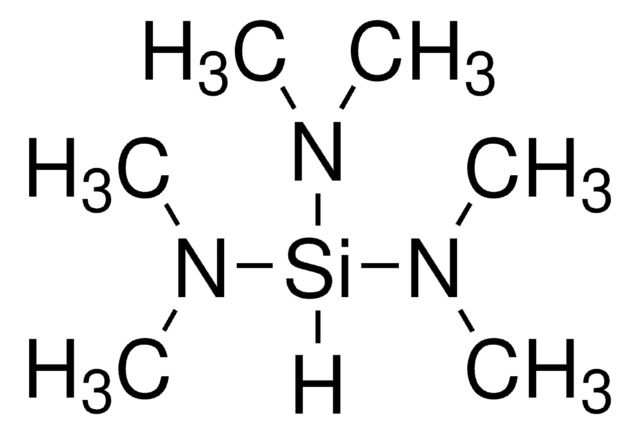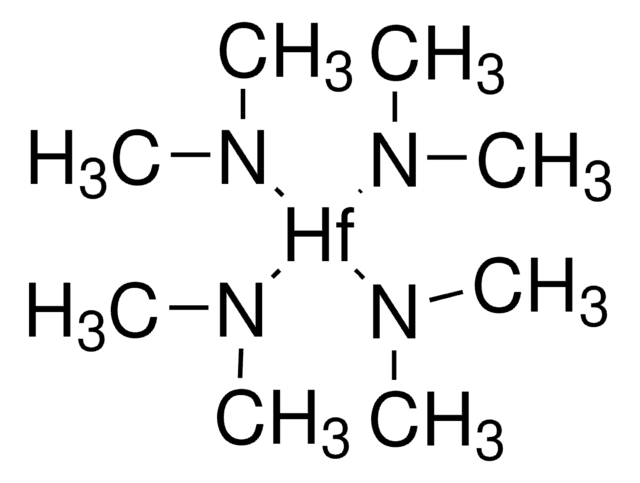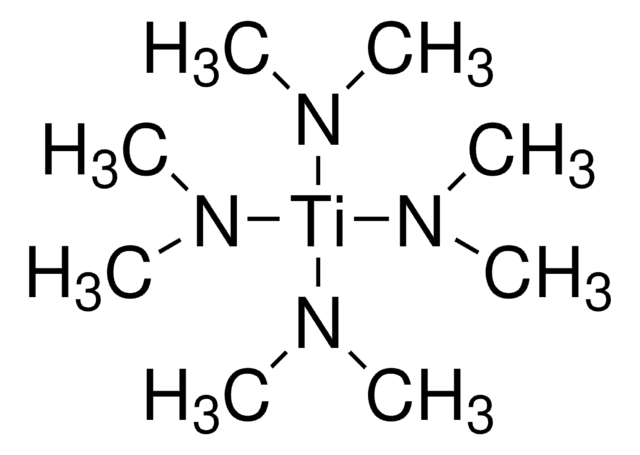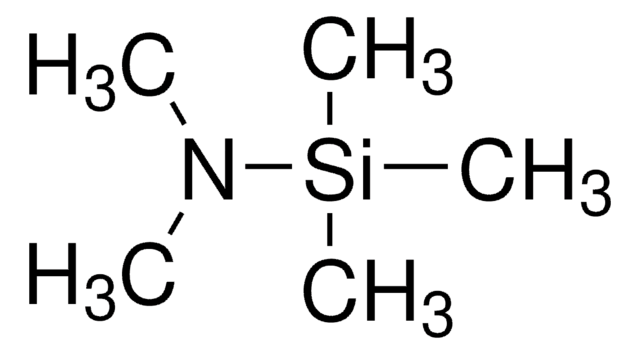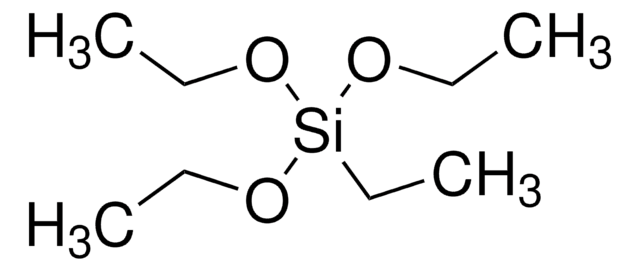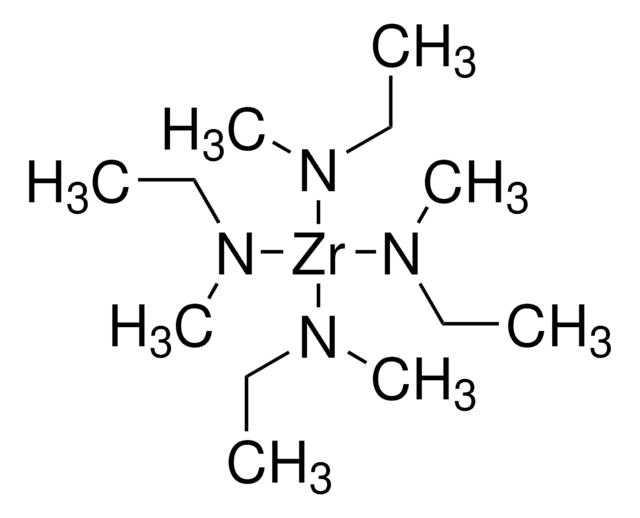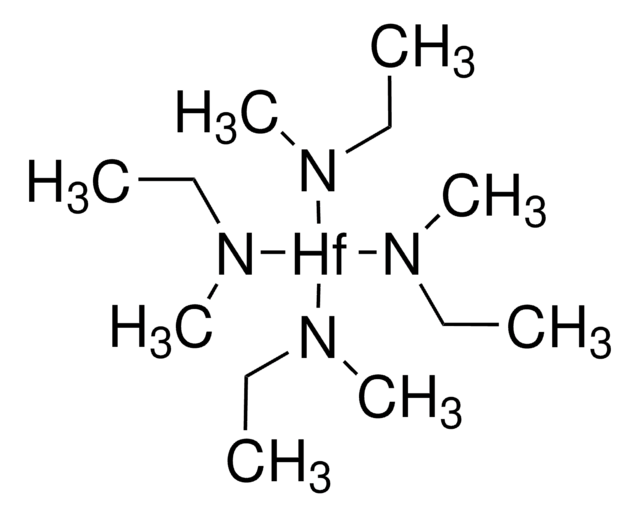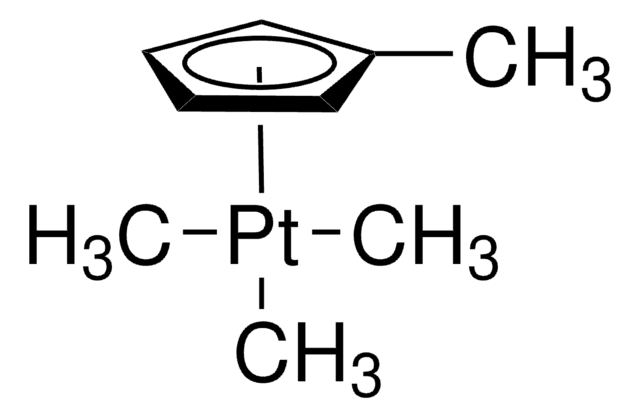759562
Tris(dimethylamino)silane
packaged for use in deposition systems
Synonym(s):
Tris(dimethylamino)silane, (Me2N)3SiH, N,N,N′,N′,N′′, N′′-Hexamethylsilanetriamine, Tris(dimethylamido)silane, N,N,N′,N′,N′′,N′′-Hexamethylsilanetriamine, TDMAS
About This Item
Recommended Products
Quality Level
Assay
≥99.9% (GC)
form
liquid
bp
142 °C (lit.)
mp
−90 °C (lit.)
density
0.838 g/mL at 25 °C (lit.)
SMILES string
CN(C)[SiH](N(C)C)N(C)C
InChI
1S/C6H19N3Si/c1-7(2)10(8(3)4)9(5)6/h10H,1-6H3
InChI key
TWVSWDVJBJKDAA-UHFFFAOYSA-N
Looking for similar products? Visit Product Comparison Guide
General description
Application
- As a silicon source for deposition of aluminum silicate on TiO2 anodes for dye-sensitized solar cells vis atomic layer deposition method.
- As a precursor to fabricate functionalized Si reinforced separators for Li-ion batteries.
Signal Word
Danger
Hazard Statements
Precautionary Statements
Hazard Classifications
Acute Tox. 3 Dermal - Acute Tox. 3 Inhalation - Acute Tox. 4 Oral - Eye Dam. 1 - Flam. Liq. 2 - Skin Corr. 1B - Water-react 2
Supplementary Hazards
Storage Class Code
4.3 - Hazardous materials which set free flammable gases upon contact with water
WGK
WGK 3
Flash Point(F)
16.0 - 32.0 °F - closed cup
Flash Point(C)
-8.89 - 0.00 °C - closed cup
Choose from one of the most recent versions:
Certificates of Analysis (COA)
Don't see the Right Version?
If you require a particular version, you can look up a specific certificate by the Lot or Batch number.
Already Own This Product?
Find documentation for the products that you have recently purchased in the Document Library.
Customers Also Viewed
Articles
Spin-based electronic (spintronic) devices offer significant improvement to the limits of conventional charge-based memory and logic devices which suffer from high power usage, leakage current, performance saturation, and device complexity.
The properties of many devices are limited by the intrinsic properties of the materials that compose them.
Our team of scientists has experience in all areas of research including Life Science, Material Science, Chemical Synthesis, Chromatography, Analytical and many others.
Contact Technical Service